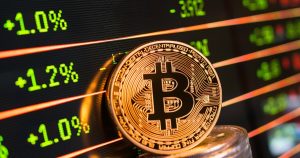On April 9, Saab revealed that this complex scheme involved the unauthorized sale of oil, where payments were made in both cash and cryptocurrencies, thus bypassing official channels. Orchestrated by El Aissami and Joselit Ramirez, former head of the cryptocurrency regulatory body Sunacrip, the operation included moving large volumes of crude without adherence to legal protocols. Using the imposition of international sanctions as cover, they reportedly manipulated transactions to evade oversight, including a notable instance where $35 million was deposited into a shell company’s account, with a portion then converted into cryptocurrencies.
Saab pointed out that although he did not disclose specific figures, previous assessments suggest that nearly $20 billion was lost to these unregistered transactions, which were subsequently obscured through investments in digital currencies. The utilization of cryptocurrencies, Saab noted, complicated the investigation, providing a high level of anonymity to the transactions. He remarked on the difficulty posed by digital financial technologies used to conceal and evade legal scrutiny, highlighting that these laundering activities were facilitated through platforms like Kraken, rendering them virtually “undetectable” by domestic regulatory bodies. Additionally, these funds were sometimes transferred internationally via cryptocurrency to further complicate tracking.
Investments from the laundered money were also funnelled into cryptocurrency mining operations within Venezuela, with El Aissami being aware of these activities. This latest round of arrests follows earlier actions taken more than a year ago against Ramirez and others following President Nicolas Maduro’s directive to overhaul Sunacrip, which is still undergoing restructuring.
This public acknowledgement by the Venezuelan government marks the first official recognition of cryptocurrency’s role in facilitating illegal oil payments. It adds to existing evidence, including a previous indictment in October 2022 of five Russians and two Venezuelans who used dollar-pegged stablecoins to launder money and evade sanctions through oil transactions.












